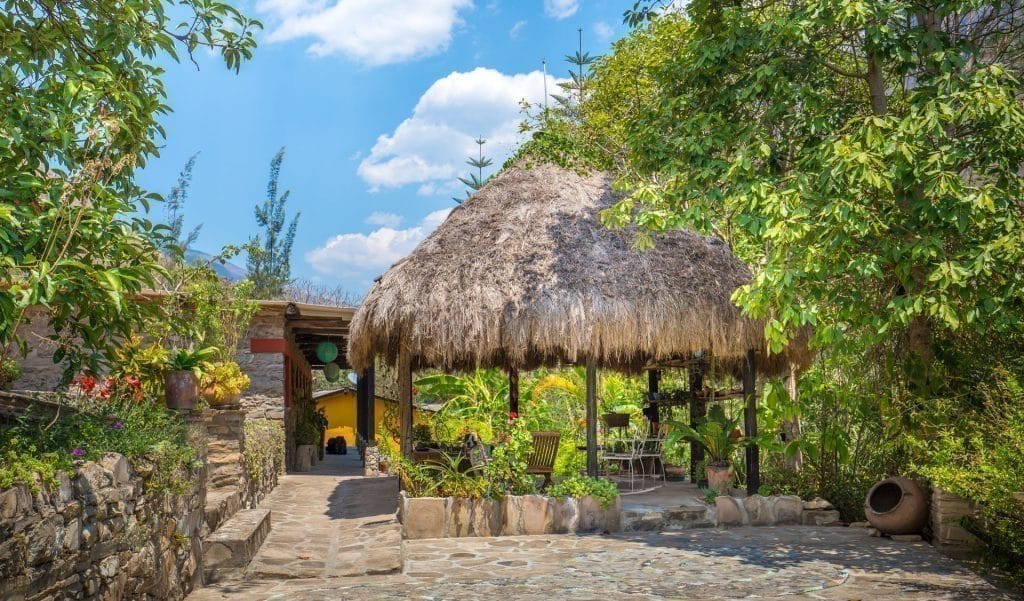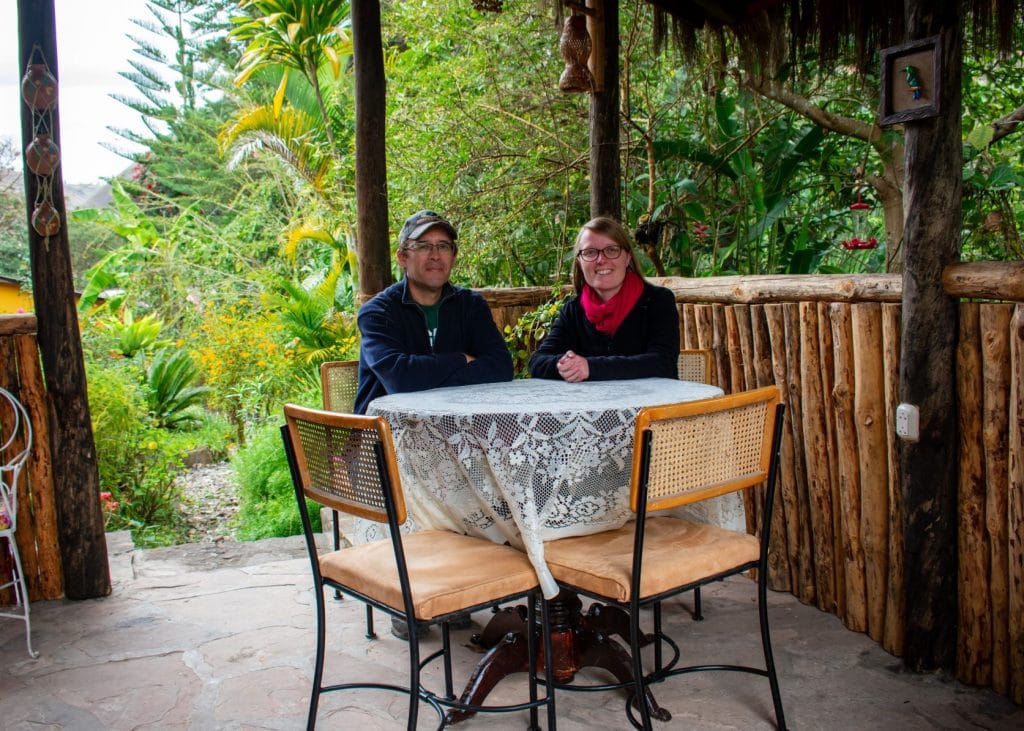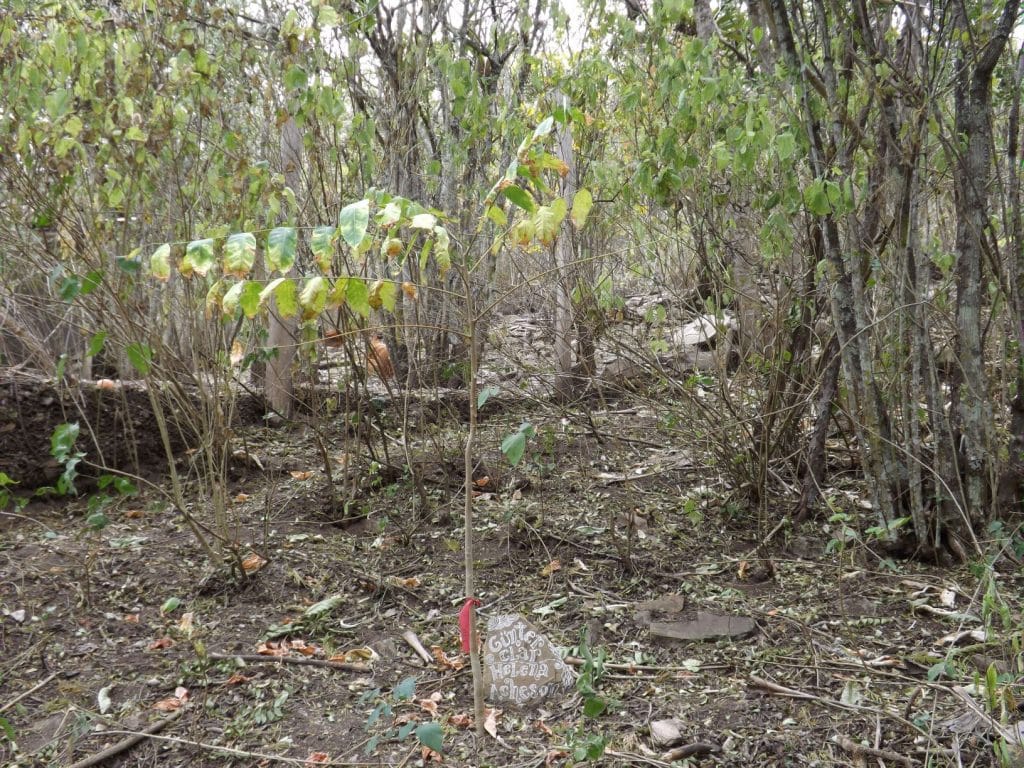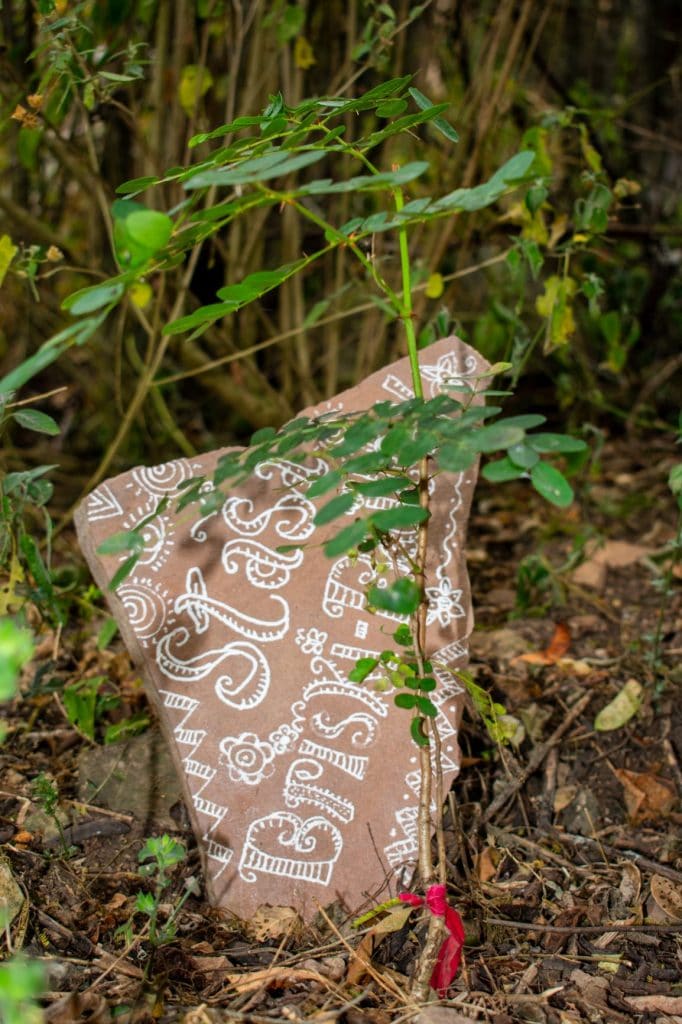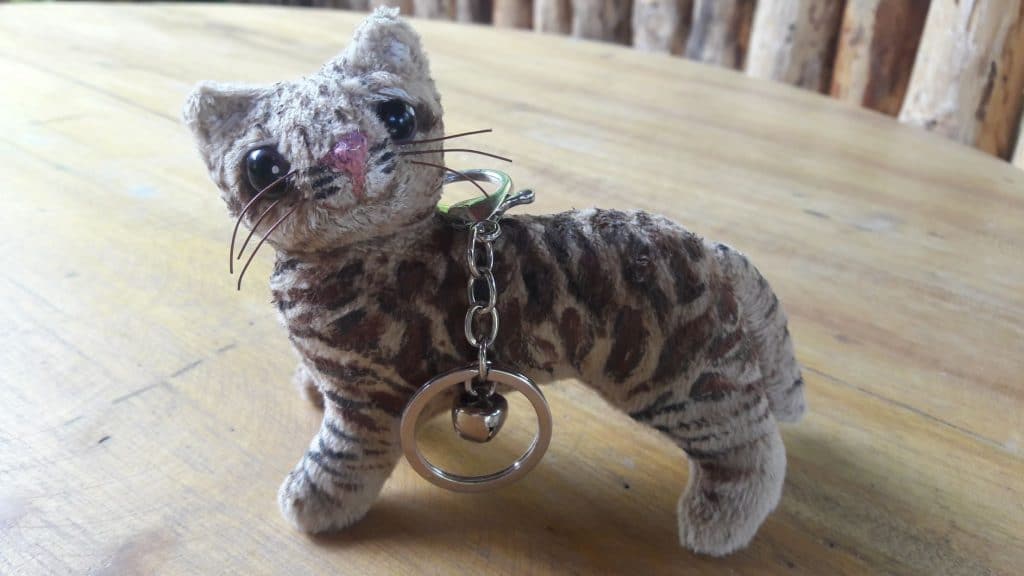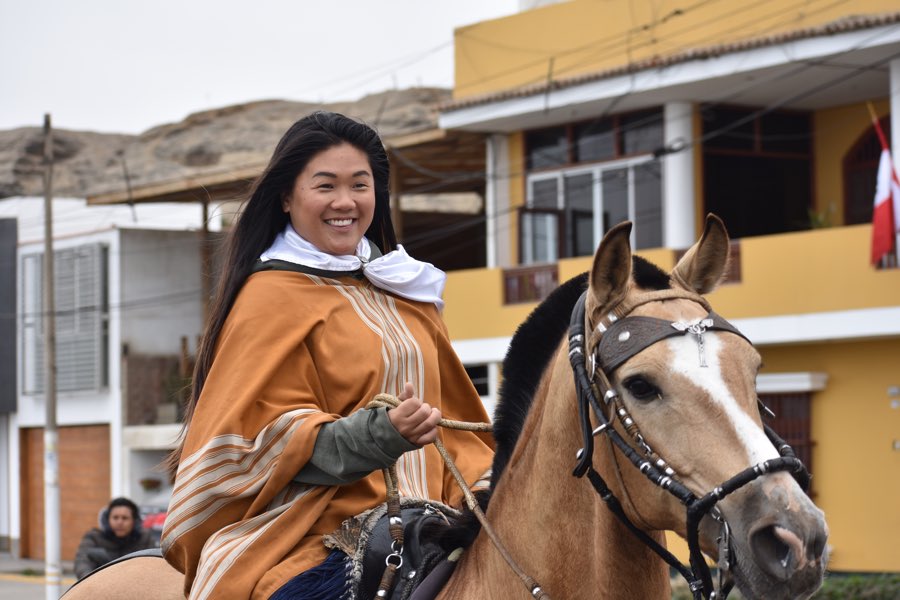As you already know, Phima Voyages is a travel agency committed to responsible and rural tourism. We obtained the Travelife Certification for Travel Agencies in November 2019.
A common point in responsible tourism is carbon emissions for long-haul flights. So, to reduce the carbon footprint of our customers, we decided to support reforestation in our region and plant trees.
How to lower our carbon emissions as travelers, but also from our travel agency perspective?
- Do not use the aircraft for short breaks or short trips. Whenever possible, move in carpooling or Blablacar, by bus or train, but avoid flights. The trip will certainly last longer, it probably will not come back cheaper, but it is a committed act.
- If you take a long-haul flight, consider a longer holiday. 15 or 21 days days will allow you to know your host country and really change your mind.
- Privilege direct flights! Airplanes burn kerosene, especially during take-off and ascent to cruising altitude. As a result, journeys with several connections consume even more kerosene and emit more carbon.
- Use airlines that engage in more responsible transportation and test for example biofuels.
- And last, but not least: Use a carbon offset program!
In fact, using a compensation program – we were interested in it, but …
But nothing we liked – too impersonal, too expensive, too far from our field of action which is Peru and especially, the north of Peru!
To reduce the carbon footprint of our travels, we decided to support reforestation in our region. For this we found two possibilities.
Reforestation by adopting a tree at the ACP Los Chilchos
For travelers who are not visiting the Amazonas region, in 2022 we created a partnership with the NGO Conservamos por Naturaleza and their Reforesta program for reforestation in ACPs (private conservation areas) in Peru.
As travelers with Phima Voyages, you adopt a tree in the ACP Los Chilchos in the Amazonas region in northern Peru. Los Chilchos is the largest private conservation area in Peru. At the end of each year, we send the adoption certificates.
Los Chilchos is a difficult to access ACP (12 to 13 hours of hiking) that is not really open to tourism, but with this video you can see the magnificent forest that you will help protect.
Reforestation at Perico’s ACP Milpuj
For our travelers who pass through the Amazonas region, we have created a partnership with our friend Perico from the Private Conservation Area (ACP) Milpuj to help him reforest the area of his nature reserve, even more so after the devastating fires of the summer of 2024.
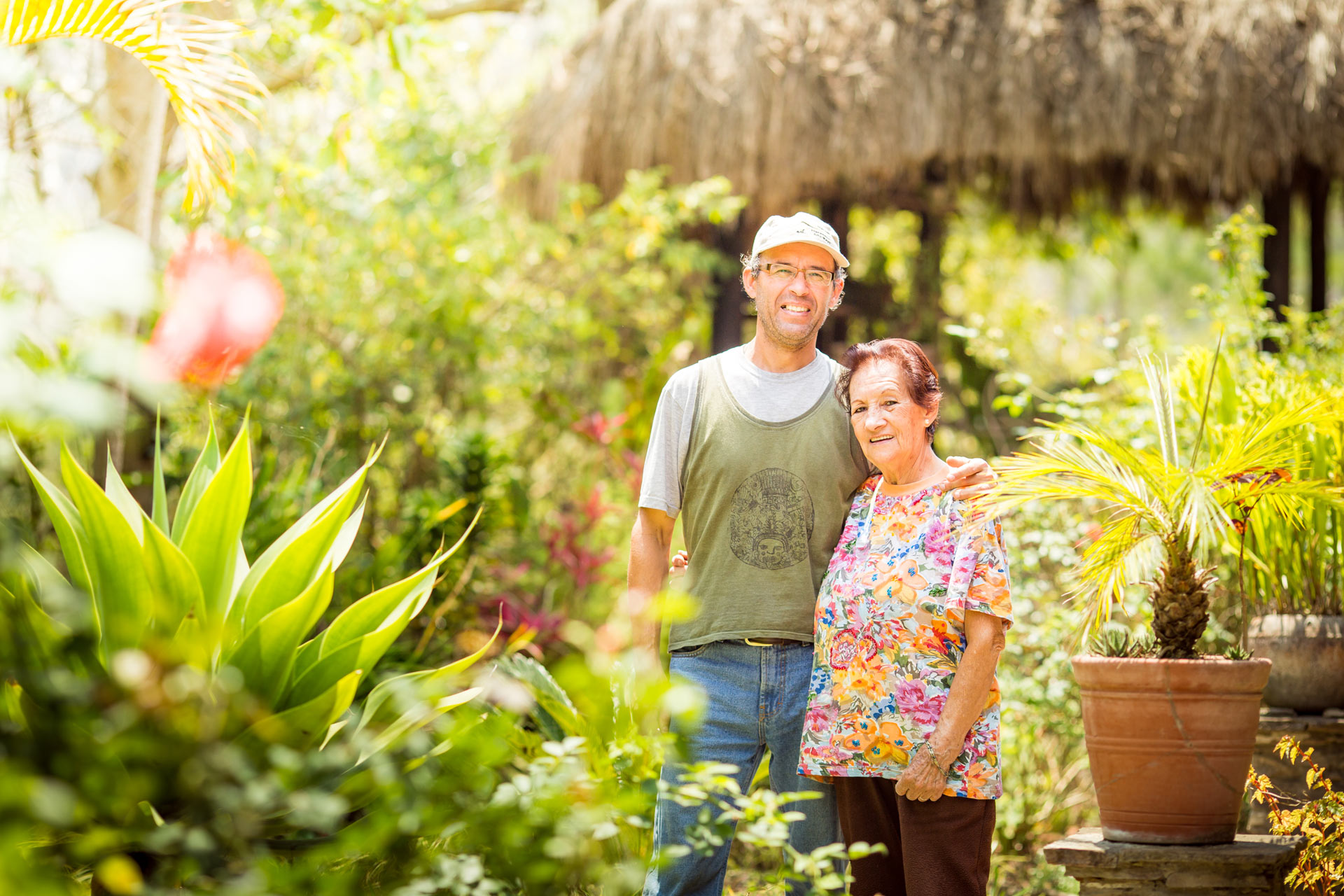
Perico and his mother Lola have been involved for years in the conservation of fauna and flora. We can say that they are among the forerunners of responsible tourism in the region! For this, they had declared their property as a Private Conservation Area. (Dona Lola has passed away in 2022.)
Since then they have built very nice guest rooms, in harmony with nature, they produce honey from tara (a native tree of the region, the family of acacias), have their own vegetable garden and raise organic hens.
Reforestation of their 70-hectare property is a big responsibility for them. And reforestation is expensive!
How does reforestation work?
In short, reforestation means replanting trees, where they have been torn or burned. Until here, it’s simple 🙂
But planting a tree is not that easy ! Be aware that a tree is more likely to survive if it is already a more robust tree, so an older one. But of course, these trees are more expensive than small shoots.
What does this mean ?
- Perico has created his own nursery to grow small tree plants. But he also gets small trees from the surrounding ACPs.
- We must take into consideration all the care that must be given to the small trees. It must be regularly treated to water and protected from diseases. Many shoots do not survive.
- One could of course buy or replant an already larger tree that is more likely to take root and survive. But in this case, the purchase is more expensive or the nursery phase is prolonged and costs money too.
- In both cases it is necessary to take into account
- the actions of replanting the small tree in the nursery or
- to buy the tree and bring it back to the ACP and
- finally to plant it at its final location (ie a person who will bring it to its future location, dig the hole, put the tree and water it).
Reforestation in partnership with ACP Milpuj
In order to be as close as possible to our local partners, we decided to support the reforestation of ACP Milpuj instead of doing carbon offset programs that did not seem very suitable for our size and vision.
When you travel to the Amazonas region, you can plant your tree yourself at Perico. By supporting it, we can all see the progress together each year and we work with people we trust.
Perico will prepare an adoption certificate in your name, but also a stone plaque with your name that will be next to “your” tree. Once the tree is planted, you will receive the photo by email. (For information, the best season to plant is between October and March, during the rainy season.)
We were thinking that doing something to counteract the carbon emissions of our travelers thus keeps this human / personal side that is very dear to us.
How much does reforestation a tree cost?
Perico estimates that the cost for replanting a tree is around 100 soles. This includes
- Nursery care
- Planting
- Care until the tree can survive alone (about 3 to 5 years)
But – you can also decide to adopt a tree at Perico, without traveling with us!
Other possible commitments than reforestation to ACP Milpuj
Do you prefer to engage in the protection of endemic animals in the area instead of reforestation? This is absolutely possible!
For more than three years now, Perico has been watching wild fauna on his property with a dozen hidden cameras (thanks to donations from nature-loving friends). Among other things, he was able to observe the existence of the leopard Colo Colo, a species little studied until now and seriously threatened with extinction.
Regularly Colo Colo is jostled by cars during the dry season when it comes out of the Nature Reserve to go to the river to drink. A local resident recently brought one of these dead Colo Colo leopards to Perico. He is doing stuffing to expose it later in his future interpretation center and raise awareness of the population.
To protect the leopards, Perico wants to build water bodies in strategic places. So he could prevent Colo Colos cross the road. The water will be used to give not only water to the animals, but also to the surrounding plants.
The program plans to install a water tank (which would fill with rainwater). Through pipes the water reaches a kind of well where animals can drink.
If you want to participate in this initiative as part of your booking (rather than reforestation), of course, Perico will also give you a certificate for your contribution.
While waiting to accumulate the economic resources necessary to start the work, Perico will make keychains in the form of a small leopard plush to sell them.


